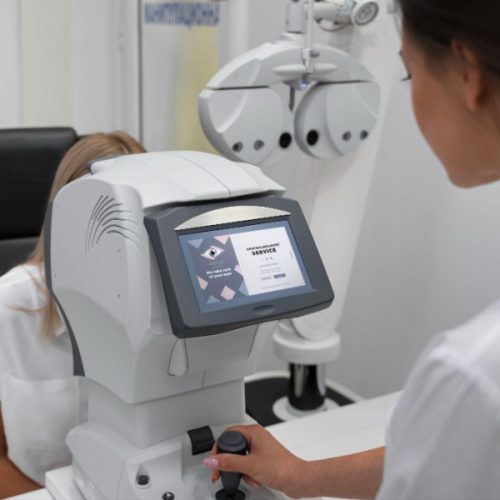Throat cancer is a serious condition that can significantly impact a person’s ability to speak, swallow, and breathe. While it’s a relatively rare type of cancer, the impact it has on a patient’s life is profound, making treatment essential for managing and overcoming the disease. If you or a loved one has been diagnosed with throat cancer, understanding the treatment process can help reduce anxiety and prepare for the journey ahead.
In this blog, we’ll walk you through the different types of treatments available for throat cancer, what patients can expect during the treatment process, and how you can prepare for each stage of your treatment plan. By the end, you’ll feel more informed and empowered about the steps ahead.
What is Throat Cancer?
Throat cancer refers to cancer that develops in the tissues of the throat, which includes the pharynx (the passage behind the nose and mouth), the larynx (voice box), and the tonsils. It is categorized into various types based on the area affected, such as nasopharyngeal cancer, oropharyngeal cancer, and laryngeal cancer. The symptoms of throat cancer can vary depending on the location of the tumor but often include
- Persistent sore throat
- Difficulty swallowing
- Unexplained weight loss
- Hoarseness or voice changes
- A lump in the neck or throat
- Coughing up blood or blood in saliva
If you’re experiencing any of these symptoms, especially if they persist for weeks, it’s important to consult a healthcare provider to rule out throat cancer or other serious conditions. Early detection is critical, as it significantly improves the effectiveness of treatment.
Treatment Options for Throat Cancer
The treatment plan for throat cancer will depend on several factors, including the type and stage of the cancer, the location of the tumor, the patient’s overall health, and the patient’s preferences. Treatment options typically include surgery, radiation therapy, chemotherapy, or a combination of these treatments.
- Surgery
In many cases, surgery is used to remove the tumor and affected tissue. The type of surgery will vary based on the location and size of the tumor. If the cancer is localized to a small area, a minimally invasive procedure may be possible. For larger tumors or more advanced cancers, more extensive surgery may be required.
- Laryngectomy: This procedure involves the removal of part or all of the larynx (voice box). A total laryngectomy requires a permanent opening in the neck for breathing, known as a tracheostomy.
- Pharyngectomy: If the cancer affects the pharynx (the throat), part of the throat may be removed in a procedure called a pharyngotomy.
After surgery, patients may experience difficulty swallowing and changes in their ability to speak. A speech therapist and swallowing therapist may assist in recovery to improve speech and swallowing abilities.
- Radiation Therapy
Radiation therapy uses high-energy beams to target and destroy cancer cells. This treatment is often used as the primary treatment for throat cancer, especially for smaller tumors, or in combination with surgery or chemotherapy for more advanced cases.
Radiation therapy can be delivered externally (external beam radiation) or internally (brachytherapy). In external beam radiation, a machine directs focused radiation at the tumor from outside the body. Brachytherapy involves placing radioactive material inside the throat to deliver radiation directly to the cancer cells.
What to Expect:
- Radiation therapy typically involves daily sessions over several weeks.
- Side effects may include sore throat, fatigue, dry mouth, difficulty swallowing, and changes in taste.
- Most side effects improve once treatment ends, but some may persist, requiring additional care and management.
- Chemotherapy
Chemotherapy involves using powerful drugs to kill or slow the growth of cancer cells. It is usually combined with radiation therapy (chemoradiation) for more advanced cases or in cases where the cancer has spread beyond the throat. Chemotherapy can also be used before surgery to shrink a tumor or after surgery to kill any remaining cancer cells.
What to Expect:
- Chemotherapy is typically administered intravenously (IV) in cycles, with each cycle followed by a rest period to allow the body to recover.
- Side effects of chemotherapy may include nausea, hair loss, fatigue, and an increased risk of infections.
- Medications and supportive therapies can help manage side effects, and your healthcare team will closely monitor your progress throughout treatment.
- Targeted Therapy and Immunotherapy
In some cases, targeted therapy or immunotherapy may be used to treat throat cancer, especially in advanced stages or when the cancer is not responding to conventional treatments.
- Targeted therapy targets specific molecules that help cancer cells grow and divide, limiting their ability to spread.
- Immunotherapy boosts the body’s immune system to help it recognize and fight cancer cells more effectively.
Both therapies are still relatively new in the treatment of throat cancer but have shown promising results in certain patients.
What to Expect During the Treatment Process
Every patient’s experience with throat cancer symptoms is unique, but there are some common aspects you can expect during each phase.
- Initial Consultation and Diagnosis
Before treatment begins, your doctor will conduct a series of tests to determine the type, stage, and location of the cancer. These tests may include a physical exam, biopsy, imaging scans (such as CT scans, MRIs, or PET scans), and a laryngoscopy to look at the throat more closely.
Once the cancer’s specifics are understood, your treatment plan will be tailored to your individual case. You’ll discuss your treatment options with your oncologist, and together, you’ll decide on the best course of action.
- Pre-Treatment Preparations
Before undergoing treatments such as surgery, radiation, or chemotherapy, your healthcare team will provide you with instructions to help prepare for the process. This could involve dietary adjustments, managing any pre-existing conditions, and stopping certain medications temporarily.
If surgery is recommended, you may need to meet with a surgeon who will explain the procedure and what to expect during recovery. If radiation or chemotherapy is part of your plan, your oncologist will discuss potential side effects and how to manage them.
- During Treatment
As you undergo treatment, your healthcare team will monitor your progress closely. Regular checkups will allow your doctor to assess how the cancer is responding to the therapy and whether any adjustments are needed.
- During radiation: You’ll lie still while the machine delivers radiation. Each session lasts just a few minutes, but you may need to undergo treatment daily for several weeks.
- During chemotherapy: The chemotherapy drugs will be administered intravenously, and you may experience side effects such as nausea, fatigue, and hair loss. Your doctor will provide medications to help alleviate these effects.
- Recovery and Aftercare
Post-treatment recovery can take time, especially if surgery was involved. Patients may need to work with a speech or swallowing therapist to regain lost functions. You’ll also need regular follow-up visits to monitor your recovery and ensure the cancer has not returned.
Side Effects and Support
The side effects of throat cancer treatment can significantly affect daily life, so it’s important to seek support from your healthcare team. This may include pain management, nutritional advice, and psychological support to help cope with the emotional impact of cancer treatment.
Conclusion
Throat cancer treatment can be difficult, but advances in medicine have led to better outcomes for many patients. Knowing your treatment plan and working closely with your medical team helps manage side effects and ensures care tailored to your needs.
If you or a loved one is diagnosed with throat cancer, start treatment as soon as possible. Early intervention boosts survival chances and speeds up recovery.
Schedule an appointment with the best throat cancer specialist today to receive personalized care and optimal treatment options.



